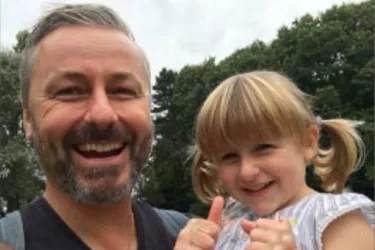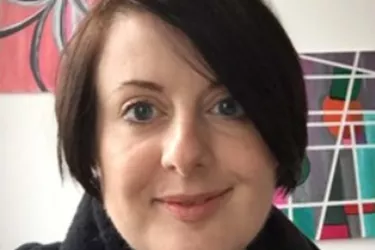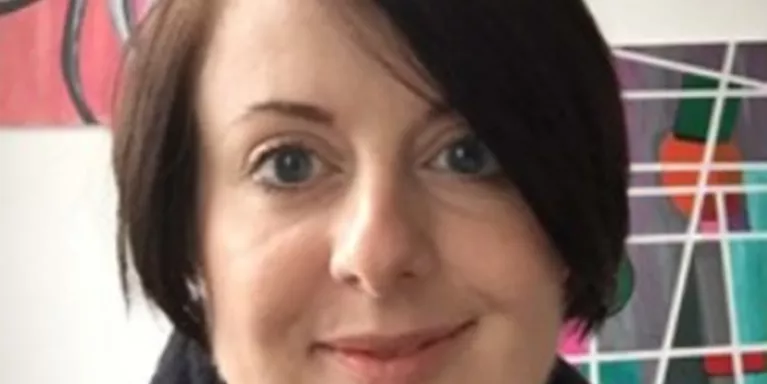My mental health as an entrepreneur: Success, failure & recovery
Nick thought he could do anything till he had a breakdown. Here he reveals how he has rebuilt his life, business and mental health – while raising money for Mind.
Nick Hussey, a clothing entrepreneur, is the founder of FrahmJacket.com, now officially In aid Of Mind.
Follow Nick on Twitter at @FRAH and his blog at soundcloud.com/frahm-jacket
I’m an entrepreneur. I’m ultra-positive. A doer. A go getter. I never give up. I can do anything. I will not fail.
I failed. I had to give up. I had a mental breakdown. Depression. Now I’m better, I have a new business, and I’m on a mission to reveal the wonderful and dangerous realities of being an entrepreneur. It’s fun, fulfilling, and although it can hurt you, it doesn’t have to.
I started my first business, called Vulpine, in 2010. I wanted to make something, to learn, expand my horizons, and challenge myself. I was ultra-ambitious.
It was scary, but I hate to be defeated by my fears. Feel the fear and do it anyway is my mantra.
I had the idea of making commuter cycling clothing that was both stylish and technical. It took two years to build from my bedroom, with just my Jack Russell Lily for company. In March 2013 we launched and it exploded.
I was addicted to the buzz. If you worked hard, exciting stuff happened. Simple.
I considered my work rate a badge of honour. I saw the fruits of my labour, "so it was even more addictive."
So I worked hard. Really, really hard. Often up before dawn, I’d work until I dropped. I loved it. I considered my work rate a badge of honour. I saw the fruits of my labour, so it was even more addictive. This was what it was all about.
For two years I was driven by pure love of what I did; the results, the success, the massive stimulation of it all. During that time we’d had our first child. I was up at night helping my wife, not as much as I should, but as much as I thought I could manage.
I was getting frazzled. In the background, I kept up appearances. My mum was ill with cancer. My wife was on maternity leave. All what I considered fairly normal (but stressful) ‘life’ stuff. I’d barely earned anything in years. We were sinking into debt, as entrepreneurs do. For every action there is an equal and opposite reaction: Payback.
You can’t work long hours every day, under immense stimulation (not always stress), with a newborn, and bills you often can’t pay, without something giving. My wife called our short holidays “daddy working in a new place”. I felt guilty resting. There was so much to do. I was addicted to ‘doing’. There were lots of pressures; big investment, new demands, all part of growing a business and maturing as an entrepreneur.
I was still ultra-positive. I was driving all this. I never gave up. Anything was possible. I’d push through.
By this time we’d had our daughter. I don’t remember seeing her for the first few months. Only her birth. That appalls me now. I was so obsessed with work, I’d missed out on important personal things.
It was someone else from the cycling industry who spotted the signs of my burnout. He’d had a mental breakdown and he saw how exhausted, scared and (under the surface), miserable I was. He offered me the chance to stay in the countryside, and I did. I cried, I slept and resolved to sort myself out. Thank you.
But there was too much pressure, too much going on, and frankly I was too invested, physically, emotionally and financially in this. Plus, I kind of loved ‘smashing it’. I couldn’t see another way.
"Everyone thought my life was posh dinners and awards dos, not 15 hours a day, barely awake on a laptop, then slapping myself in the face to get a grip."
Weirdly, I was lonely. Now, as a consultant, I see it time and again with founders. Nobody understood me, I thought. Everyone thought my life was posh dinners and awards dos, not 15 hours a day, barely awake on a laptop, crying behind office blocks, then literally slapping myself in the face to ‘get a grip’.
I had no right to be sad. I had it all. Everyone said this. Guilt. Shame. Guilt at not trying harder, being tougher, being successful (whatever that meant). Round and round in my head.
Eventually I made some changes in my life, but just as I really started to love my work again, all this stock I’d ordered didn’t show up. Our cash was in the stock we couldn’t sell, and despite all the growth and plaudits, we went bust. The process was awful.
"I’d failed. I wanted to be the good guy, but I felt like I’d let so many people down. I felt like I didn’t know who I was anymore."
I’d failed. I had been forced to give up when I never gave up. I wanted to be the good guy, but I felt like I’d let so many people down. I felt like I didn’t know who I was anymore.
Stupidly, my sense of worth was tied to my business. I had to tell my staff they’d lost their jobs and investors the company had failed, one of the most harrowing days of my life. My wife and I lost our jobs. We had as much debt as we could access. We’d risked too much and now it came back to bite us. This stuff happens all the time, but I didn’t think it would happen to me.
Alongside all this, I was physically and mentally exhausted. Years of doing, not sleeping, juggling kids, money worries, pressure, thinking at 100mph. No space, no rest, no sharing, no balance. All this was the background for my nervous breakdown. All it took was a little push… We went bust. That was a BIG push.
Then came a minor flurry of bad press and trolling. It was bonkers stuff, but I couldn’t get context for it or ignore it. I had no resources to battle it. I felt like everything was going wrong, that I ruined my family and the lives of others. I’d tried my best and the love of my family, were the things I clung to. But I hated myself.
Looking back, there was no way I wasn’t going to have a breakdown. The brain is like an engine; if you run it too hot all day, every day without checking the oil and water, it breaks. Most businesses fail. The faster the growth, the more likely that is. I hadn’t factored that properly into my/our life choices. I had no safety valve.
Founders are the thought leaders of a business. Creative and strategic thinking, under pressure, risk, on untrodden ground, requires space, time, health. You have to have a balanced life to make a great business. Looking after you is unselfish.
Now, I’m well again. I have a new company now, Frahm Jacket. It is very simple and small. We raise money for Mind and I built it too be a kinder men’s brand. Our obsession is men’s kindness, sociability and appreciating the little things, or as we say ‘Real Life’.
I look after my kids alongside building Frahm. In the year of my recovery, I ‘discovered’ my children and the joy of fatherhood. They are the new priority. I still love being an entrepreneur, building things and making clothes. So now I do both.
"The gift of my breakdown is a new life that isn’t thinking always of the future and never being satisfied."
The gift of my breakdown is a new life that isn’t thinking always of the future and never being satisfied. It’s gratitude for love, my health, the trees, and riding my bike in the cold wind and absorbing the world around me.
We still have problems to deal with, like all of us. Being a dad is hard work. I’m often knackered. But I’m not ill anymore. At 45 I’m the healthiest I’ve ever been. My ambition is for a contented life with those close to me.
If you’re an entrepreneur and you feel lonely, lost, exhausted, scared, take a break, talk. A business is better served by you being well and happy. Don’t get caught up in glamour and mythology. It’s only a business, it may well fail, even if things seem to be going well. Make sure you have a crash pad.
It’s hard, but it shouldn’t hurt you.


Information and support
When you’re living with a mental health problem, or supporting someone who is, having access to the right information - about a condition, treatment options, or practical issues - is vital. Visit our information pages to find out more.
Share your story with others
Blogs and stories can show that people with mental health problems are cared about, understood and listened to. We can use it to challenge the status quo and change attitudes.

















